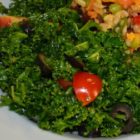
Which is healthier: full-fat dairy vs. low-fat dairy? According to new findings, low-fat dairy might not always be the healthiest choice. In fact, there is a growing amount of research which highlights the benefits of full-fat dairy.
Let’s explore some of these findings to help you decide which type of dairy is best for you:
Weight Management
A recent study found that drinking low-fat milk does not seem to prevent excess weight gain in toddlers. Low-fat milk was actually associated with overweight and obesity in preschool-aged children. Another study of Swedish women found that women who drank full-fat milk lost more body weight on average than women who consumed its low-fat counterpart.
When exploring the effects of full-fat vs low-fat dairy on weight, it becomes clear that fat may not make us fat, after all. Fat increases satiety after a meal helping to curb the appetite. It also slows the release of sugar into your bloodstream which reduces how much the body will store it as fat.
When exploring the effects of full-fat vs. low-fat dairy on weight, it becomes clear that fat may not make us fat, after all.
Hormone Balance
Another fascinating area to explore is the influence that full-fat vs. low-fat dairy has on our hormones. A recent study showed that low-fat dairy contributed to infertility (when issues are based on ovulatory infertility or lack of ovulation) and full-fat dairy decreased the risk of infertility.
Milk contains a mix of both male and female hormones. Some of these hormones are attached to fat molecules. Therefore, some of these hormones are removed from milk when the fat is skimmed away. What is left behind is a watery liquid that contains an unbalanced mix of hormones. This particular blend of hormones doesn’t seem to be conducive to fertility as it possibly throws off the body’s natural balance of hormones. The unusual blend of hormones may also explain why another study found a higher incidence of acne in teenagers who drank skim milk compared to full-fat milk (the leading cause of teen acne is… you guessed it, hormones).
Overall Health
The impact of full-fat vs. low-fat dairy on our health is possibly the most crucial area to investigate. Recent studies are consistently showing that full-fat dairy may be the more favorable choice for reducing inflammation, lowering the risk of cardiovascular disease,and decreasing levels of insulin resistance.
However, the amount of dairy we consume is another important piece to this puzzle. Studies show that consuming a lot of dairy, be it full-fat or low-fat, may not be good for our general health. High consumption of dairy may increase our risk for certain cancers, heart disease and weight gain.
Putting it All Together—Full-Fat vs. Low-Fat Dairy
The truth is that we are going to need a lot more research before anyone can give a definitive answer on which is healthier for us. With that said, the more research I do, the more skeptical I become of skim milk, low-fat yogurt, and reduced fat cheese. This is why I only consume full-fat and preferably organic dairy products. I strongly believe that the real thing in its most natural form is always a better choice when it comes to our health.
My suggestion is that if you do decide to include dairy in your diet, aim for no more than one or two servings per day. Also, do a little of your own research (and add in your natural hunch) to decide if full-fat or low-fat dairy is the better choice for you.
I strongly believe that the real thing in its most natural form is always a better choice when it comes to our health.
Why Organic Matters
I also think it is important to opt for organic dairy products when possible because organic/biodynamic farming is better for the environment, better for cows, and also healthier for us, too. Organic dairy is free of pesticides, antibiotics and growth hormones. It also contains higher amounts of omega-3s compared to conventional milk, which may help lower the risk of heart disease, depression, dementia and arthritis.
Looking for more articles and tips about nutrition? Check out all the posts on my blog.
- Eating Behavior (47)
- Grocery Shopping Tip (9)
- Gut Health (42)
- Healthy Eating (49)
- Low FODMAP (13)
- Nutrition Articles (32)
- Recipes (27)
- Uncategorized (4)



